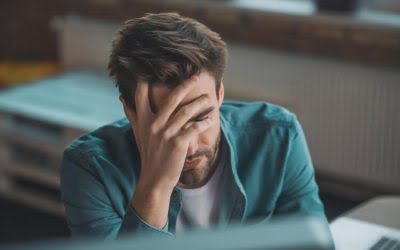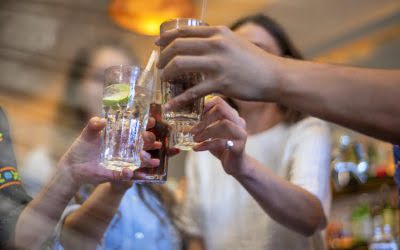Many people experience sleep disturbances after a night of heavy drinking. Without restful sleep, you might experience exacerbated anxiety levels, which can quickly become a vicious cycle of anxiety where poor sleep perpetuates anxiety and vice versa. Understanding how alcohol consumption can become an anxiety trigger helps in managing its impact better. Research shows that chronic alcohol use alters how http://anfiz.ru/news/item/f00/s01/n0000146/index.shtml you respond to stress.
Who Is Most at Risk for Panic Disorder?
A rise in BAC levels leads to temporary feelings of excitement, but feelings of depression occur as BAC levels fall. As a result, it’s possible that having a few drinks that make your BAC rise and then fall back to normal again can make you more anxious than you were before. When dealing with stressful days or nervous situations, you may be tempted to have a glass of wine or a beer to calm your nerves. However, drinking alcohol, especially heavily and over a long period of time, can actually increase your anxiety. Dealing with anxiety after quitting drinking can be a challenging but crucial aspect of the recovery process. As the body adjusts to sobriety, individuals may experience heightened anxiety due to the absence of alcohol’s sedative effects and the underlying issues that may have initially led to substance use.
Exacerbation of existing mental health issues

In the study, http://www.novostiit.net/page/25?s=C%2B%2B participants reported an average impairment score of 4.54 out of 10 in the work or school domain, indicating significant disruption in their professional or academic activities. For social life, the average impairment score was 4.12 out of 10, reflecting challenges in maintaining social interactions and connections. Furthermore, patients indicated that they lost an average of 1.69 days per week due to symptoms related to panic disorder.
Social embarrassment
Research shows that people with alcoholism find it difficult to recover from traumatic events. This is possibly because of the effects of alcohol abuse, which can actually change brain activity. In an attempt to alleviate the worsening anxiety and discomfort, individuals might turn back to alcohol, creating a dependence loop. The NHS website, Every Mind Matters, has advice on how to access support and treatment for anxiety in England. This includes options for NHS support, links to charities, helplines and communities, and tips on self-care. If your treatment plan includes medication, your psychiatrist will prescribe and manage it.
Self-Help and Management Strategies
While some people are able to drink responsibly and in moderation, others struggle to control their drinking and put themselves at risk of developing addiction and other physical health concerns. In other words, alcohol is not all bad – but it does have the potential to damage your psychological and/or physical health. If you are more prone to these disorders, you may have a more extreme reaction to alcohol withdrawal than someone who does not suffer from panic attacks.

Teen Mental Health Statistics North Carolina

Her clinical work, advocacy, and volunteer service have focused on working with domestic violence survivors and conducting mental health research in over 30 countries. Physical activity releases endorphins, which are known to improve mood and reduce anxiety. Working out doesn’t have to be super intense to have a positive effect on anxiety, either. Walking, running, yoga, or even swimming can be healthy outlets that combat anxiety and offer stress relief.
- Alcohol has an effect on brain chemistry – it can induce panic because of its effects on GABA, a chemical in the brain that normally has a relaxing effect.
- Only a qualified healthcare professional can diagnose an alcohol use disorder or an anxiety disorder.
- In the study, participants reported an average impairment score of 4.54 out of 10 in the work or school domain, indicating significant disruption in their professional or academic activities.
- The two often create a cycle that’s hard to break, whereby the onset of one is a trigger for the other.
- Later in the sleep stages, alcohol disrupts REM sleep and paralytic sleep, which is when your body rejuvenates itself.
- Researchers in a 2017 study measured anxiety clinically and found that anxiety levels were higher in those with AUD than those without when they faced stress.
- Some studies on mice show that alcohol-related anxiety can last anywhere from 4 to 14 hours.
However, when the alcohol wears off, GABA levels decrease, triggering an anxious, exaggerated, and overstimulated state. People can speak with a healthcare professional for help managing anxiety or mood disorder symptoms. Research in a 2019 article suggests that up to 50% of people having treatment for AUD also meet the criteria for at least one anxiety disorder. Research suggests there may be a bidirectional connection between anxiety disorders and AUD.

About Medical News Today
A 2022 longitudinal study highlights a bidirectional relationship between AUD and anxiety disorders. The authors suggest someone with AUD has a higher risk of developing an anxiety disorder and vice versa. People with AUD may have a higher risk of developing an anxiety disorder, such as generalized anxiety disorder or social anxiety. About 20 percent of people with social anxiety disorder also suffer from alcohol dependence. The sense of relaxation you feel when you drink can often be attributed to your blood alcohol content (BAC).
This relationship creates a cycle where anxiety fuels drinking, and drinking exacerbates anxiety, potentially leading to both alcohol use disorder and worsening anxiety symptoms. It is very common for people who https://dominterior.org/for/curtain?filter_by=review_high experience anxiety to self-medicate by consuming alcohol, which can offer a temporary fix. In fact, research suggests that around 25% of people with panic disorder also have an alcohol dependence.

